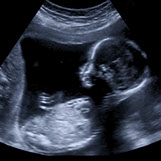When you separate, you will undoubtedly be thinking about money- both in the short term and in the medium to long term. When dividing assets, you need to think about the welfare of the family for the foreseeable future. Your family’s financial resources may be already stretched as two homes are more expensive to run than one.
Assets are property and other financial resources. As I have mentioned before, there are two distinct sets of issues you need to tackle:
The first is the immediate- how are you going to manage monthly commitments such as mortgage payments, utility bills and school fees? How are you going to service debts such as car loans and credit cards and if there is going to be a deficit who is going to pay for that?
We may need to consider financial needs obligations, so a payment of spousal support (aliment). If your finances are really stretched, you may decide to carry on living together in the family home until the bigger property issues are resolved and you can both afford to move on.
The second issue with division of assetsis deciding how to split the property that you have acquired during the marriage (known as matrimonial property or the pot) and to consider ongoing spousal support, if necessary, and child maintenance support if you have children. You may also wish to look at longer-term finances such as your respective retirement funds and future expenses for your children such as school fees and university costs.





